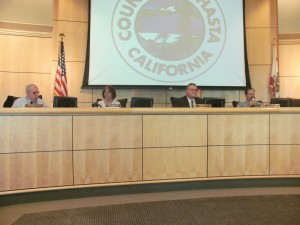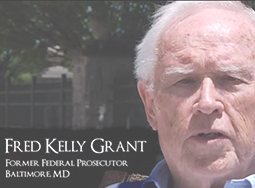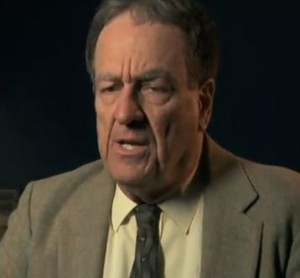Shasta College in Redding, California has a diesel engine mechanics class, which gives students entry-level job skills into a diesel technology career. But the college had to destroy all of its diesel engines following implementation of the California Air Resources Board’s diesel regulations, which were based on bogus science.
California’s Global Warming Solutions Act of 2006, passed under AB 32, requires cutting greenhouse gas emissions in California to 1990 levels by year 2020.
Under AB 32, the California Air Resources Board has demanded trucking companies, construction firms, supply chains, and all other businesses which use diesel trucks, retrofit or replace their diesel equipment.
But there are problems with these regulations in the Golden State.
CARB Missed the ‘Coordination’ Phase
In November 2013, the Alliance for California Business filed a complaint in Glenn County Superior Court over the mandated diesel particulate filters that can cost upwards of $20,000 per truck.
In its lawsuit against the California Air Resources Board, the ACB said truck fires are occurring and increasing as the spread of the required exhaust filters grows. A summary prepared by ACB shows an increasing number of truck and bus fires that emanate from the engine site of the filter.
January 5, Glen County Superior Court Judge Peter Twede denied a motion by the CARB to dismiss the suit brought by the Alliance for California Business. This case will continue later this month.
In another very important legal case against the CARB, the City of Redding initiated “coordination demands,” which allows local governments essential input into development of regulations that will impact cities and counties.
According to Fred Kelly Grant, the attorney for the project, the Federal coordination requirement requires federal and state agencies must attempt to resolve any conflicts, and achieve consistency with local laws and regulations. The coordination statute requires government agencies to “coordinate” with local governments and officials, in order to take into account and be appraised of any conflict with that local government.
This “coordination” means actually meeting with local government officials in their counties and cities, rather than just holding hearings in which members of the public are allowed 3 minutes to speak, as the CARB does.
Grant, a property rights attorney, explained:
“The EPA’s protégé, the California Air Resources Board, has issued regulations requiring installation of diesel exhaust filters on trucks that use the highways in California. “There is no sound science supporting the regulations, and the economic harm will again be enormous. The regulations apply even to the independent, one-man or family trucking business for which the cost of the new equipment is greater than the value of the trucks. A trucker that cannon afford the new equipment cannot even sell his truck—it will simply be junked. The City of Redding, working through a dedicated coordination committee, is resisting the application of the rule because of the extreme economic harm that will result to the city and surrounding area citizens. Obviously truck transport links together every facet of the economy of northern California.”
The City of Redding claims that the CARB violated the law by failing to coordinate with the City’s local government over diesel regulations developed under AB 32.
The Shasta County Coordination Committee says strong evidence demonstrates that the diesel retrofit and upgrade requirement will prove deadly to the economy of rural Californians and independent and small truckers.
Grant is planning an evidentiary hearing later in January at which local government officials will testify of the failure of the CARB to enter into the federally mandated coordination requirement.
Grant founded The Stand and Fight Club Inc., to assist Redding and other local governments in their defense against an unconstitutional affront resulting from the CARB’s arbitrary, autocratic actions.
Real Science
According to my discussions with Dr. James Enstrom, a 34-year science professor at UCLA, the CARB’s diesel regulation was based on the unproven premise that the fine particulates from diesel exhaust is harmful to the public.
Enstrom, who earned a Ph.D. in Physics from Stanford University, and a M.P.H. in epidemiology from UCLA, says most of the government policies about air quality regulations come from poor or incorrect science. His studies proving otherwise, have survived intense challenges from many eminent experts in the field who have been unable to find errors in Enstrom’s methods or findings.
Dr. Enstrom was one of only a few scientists willing to blow the whistle on the fraudulent science perpetrated at the California Air Resources Board – and was then fired by UCLA.
He vehemently objected to the CARB’s aggressive state regulations, developed by complicit scientists at universities, funded by lucrative government research grants.
Enstrom published a politically incorrect peer-reviewed study in 2005, which showed that fine particulate matter does not kill California residents—the basis of California’s restrictions on diesel engines because of their contributions to particulate air pollution health effects.
In his 2005 study of American Cancer Society data, Enstrom found no scientific evidence to support CARB’s assertion that very fine particulate matter smaller than 2.5 microns causes a variety of disease outcomes, including cancer and asthma.
The California Air Resources Board ignored his study, which specifically showed no evidence of premature deaths in California due to exposure to PM2.5.
Under the direction of CARB Chairwoman Mary Nichols, the CARB has targeted truckers. And under the CARB’s transportation regulations, state air pollution regulators have inspected thousands of trucks and written thousands of citations to the truckers who do not have newer diesel engines, or retrofitted old engines with the special CARB exhaust filters that cost about $15,000 – $20,000 each.
An alliance of small California businesses sought an injunction to prevent implementation of the Diesel Particulate Filter regulation issued by CARB due to the danger to truckers emanating from overheating of the exhaust filters.
The basis of the complaint is that CARB, as well as the EPA, has ignored clear statutory law as enacted by the California legislature.




